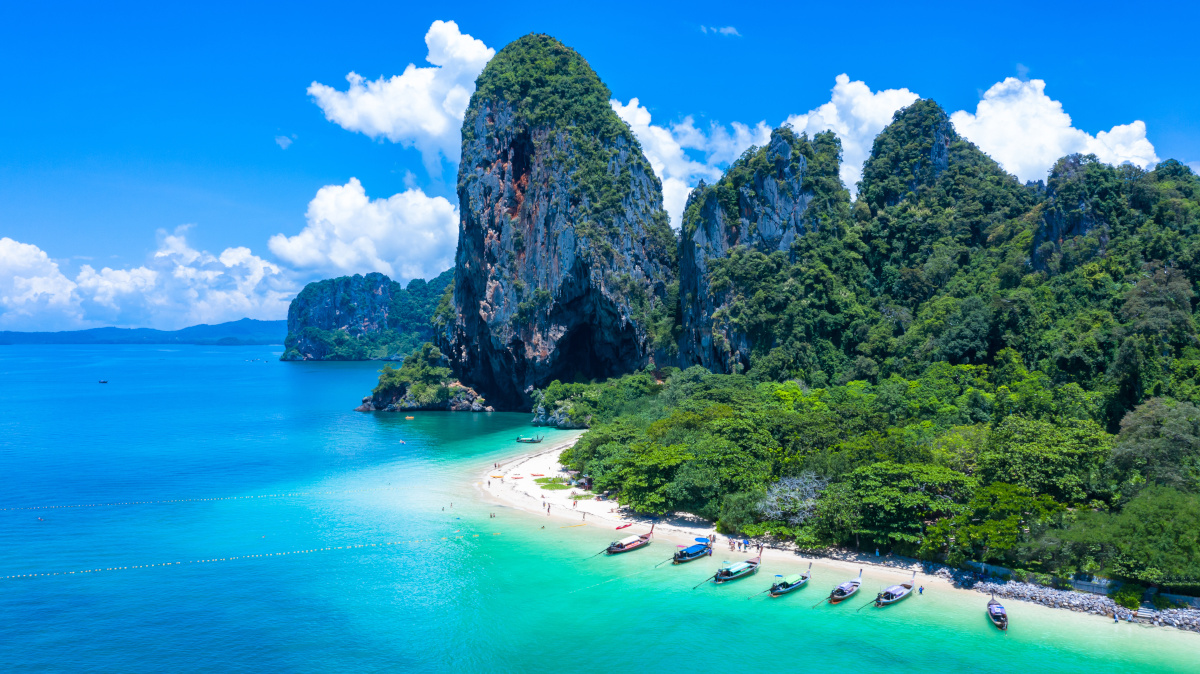
Thailand Travel Insurance
Why Travel Insurance is Essential for Thailand
Whether you're going to Thailand seeking adventure or ultimate relaxation, you're going to need travel insurance either way. While the country does have very high-quality medical facilities, paying for it out of pocket can quickly get expensive. Plus, problems like trip cancellation, trip disruption, lost luggage, or trip delay can happen on any trip, no matter the budget or itinerary. Read on to find out more about Thailand travel insurance and other helpful information about planning your trip.

Health & Safety in Thailand
Medical Care and Hospitals
The Thai healthcare system is very high quality, especially in Bangkok, which attracts medical tourists to world-class facilities like Bumrungrad International Hospital. In addition to these private hospitals, which tend to cater to international patients, the country also has public hospitals and clinics. Public hospitals tend to be more affordable, but can have long wait times, while private facilities are more expensive. English-speaking medical professionals are commonly found in urban hospitals, though may be more rare in rural or remote areas.
No matter where you seek care when in Thailand, payment will likely be required up front, even in emergency situations. That’s why it’s essential to have travel insurance for Thailand, as emergency medical expenses can add up quickly and cause additional stress when you are urgently seeking care. It’s also wise to have emergency medical evacuation cover, in case you have an emergency that can’t be treated locally, and to carry proof of your insurance coverage as well as any emergency contact numbers.
Health Risks and Vaccinations
There are several health and safety concerns you’ll want to keep in mind while traveling in Thailand. Road accidents are one of the leading causes of injury and death for tourists. Travelers should exercise extreme caution when driving or riding as passengers on motorbikes, which are commonly used across Thailand, and always wear a helmet.
To avoid foodborne illness in Thailand, stick to bottled water and avoid raw or undercooked meats. Street food and informal vendors are common in Thailand as well as across Southeast Asia. Stick to vendors who are popular and recommended locally, as they are more likely to adhere to safe food practices.
Mosquito-borne illnesses are another concern. Dengue fever is present year-round, particularly during the rainy season, and other illnesses like chikungunya and, in rural areas, malaria may occur. In addition to taking steps to avoid insect bites, you may also need to take prescription medication to prevent malaria if traveling to certain regions.
While no vaccinations are required to visit Thailand, the CDC recommends that, in addition to being up to date on all routine vaccinations, U.S. travelers are also vaccinated for Hepatitis A and B, typhoid, rabies, measles, and if visiting certain areas, Japanese encephalitis. If you are an adventure traveler who plans to visit remote areas for activities like hiking/trekking or cycling, it’s especially important to visit a travel clinic prior to travel, as disease risks can be localized to particular regions. It’s always wise to carry a basic medical kit with common over-the-counter medication, as well as spare prescription medication or copies of your prescriptions.
Insurance Benefits and Coverage for a Trip to Thailand
What Does Thailand Travel Insurance Cover?
When considering travel insurance for Thailand, you will want to make sure your policy covers all the areas below so that you’ll be prepared — no matter what happens during your trip.
Trip cancellation and trip interruption insurance:
Travel medical insurance:
Emergency medical evacuation insurance:
Baggage and personal belongings insurance:
Trip delay insurance:
Optional add-ons:
Choosing the Right Plan
Ripcord has a variety of plans suited for different trips to Thailand. For adventure travelers who want to explore Thailand’s caves and island coasts, Ripcord is an extensive plan with high coverage limits and enhanced coverage, such as emergency evacuation and repatriation, perfect for trips to remote or rural destinations. Cavalry is suited for urban travelers who are seeking luxury and cultural experiences, while broadly sticking to major cities and established destinations such as Samui and Phuket. Meanwhile, Harbor offers robust coverage to the budget-minded leisure traveler who is backpacking through Southeast Asia. You can compare all of Redpoint’s comprehensive plans and figure out which one might be right for your trip here.
Entry Requirements & Practical Information
Entry and Visa Requirements
U.S. citizens traveling to Thailand need to have a passport with six months’ validity from the date of entry. A visa is not required for tourists visiting for less than 60 days, however, the Thailand Digital Arrival Card system went into effect in May 2025, which requires all foreign visitors to register their trip electronically three days prior to arrival.
What To Do in an Emergency
If you have an emergency in Thailand, emergency services can be contacted by dialing 191. In addition, Redpoint offers 24/7 support on its helpline to travelers who have an emergency or need assistance. If you are having trouble locating help locally, Redpoint’s associates can help connect you to the help you need on the ground.
The U.S. Embassy is located in Bangkok, and there is also a consulate office located in Chiang Mai. Officials there can help you with passport issues, emergency assistance, and legal issues.
Address: 95 Wireless Road
Bangkok 10330, Thailand
Phone: +66-2-205-4000
Popular Activities and Adventure Travel in Thailand
Thailand has no shortage of activities for adventure travelers seeking a thrill. Hike lush trails in Chiang Mai, trek through hill tribe villages in the north, or cycle past rice paddies and temples in Sukhothai. In the winter, Thailand’s mountains in Chiang Mai and Nan Province are ideal to explore. Cultural tours reveal the rich heritage of Bangkok and Ayutthaya all year round. Just don’t forget to make sure that your travel insurance policy will cover any extreme or adventure travel activities you plan to do.
FAQs for Thailand Travel Insurance

Is travel insurance mandatory for Thailand?
What does Thailand travel insurance cover?
How much does travel insurance cost for Thailand?
What happens if a tourist gets sick in Thailand?
Is healthcare free in Thailand for foreigners?
Does travel insurance cover trip cancellations due to government advisories?
Can I get coverage for pre-existing conditions?
Can I buy travel insurance after arriving in Thailand?
Protect Your Trip With Redpoint Travel Insurance
Protecting yourself on your trip to Thailand requires comprehensive travel insurance, and Redpoint Travel Protection has a global reputation for providing high quality policies to fit every traveler. It also offers 24/7 support to give travelers peace of mind and help them enjoy their trips. Explore Redpoint’s policies here.

